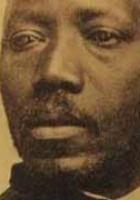George Moses Horton Biography
George Moses Horton was an African-American poet.
Biography
He was born into slavery on William Horton's plantation in Northampton County, North Carolina. As a very young child, he and several family members were moved to a tobacco farm in rural Chatham County, when his owner relocated. Horton composed poems in his mind through his teen years. He was allowed by his master to visit the nearby University of North Carolina at Chapel Hill, where he recited poems to students who eagerly wrote them down and paid him for his compositions. His fame spread, and a collection of poems was published under the title The Hope of Liberty (1829). Horton was the first black southern author and the first African American poet to produce a volume in more than half a century.
Two more collections of Horton's poetry include Poetical Works (1845) and Naked Genius (1865). Horton began calling himself "the Colored Bard of North Carolina." Many of his works were vivid and powerful attacks on slavery.
After the American Civil War, Horton moved to Philadelphia, Pennsylvania, where he lived until his death. Once in the north, he never published another verse.
During the summer of 2006, UNC Chapel Hill renamed a newly built dorm, previously known as Hinton James North, to George Moses Horton dormitory.
When auburn Autumn mounts the stage,
And Summer fails her charms to yield,
Bleak nature turns another page,
...
Am I sadly cast aside,
On misfortune's rugged tide?
Will the world my pains deride
Forever?
...
I was a harness horse,
Constrained to travel weak or strong,
With orders from oppressing force,
Push along, push along.
...
Blown up with painful care and hard to light,
A glimmering torch blown in a moment out,
Suspended by a web, an angler's bait,
Floating at stake along the stream of chance,
...
Alas! and am I born for this,
To wear this slavish chain?
Deprived of all created bliss,
Through hardship, toil and pain!
...
